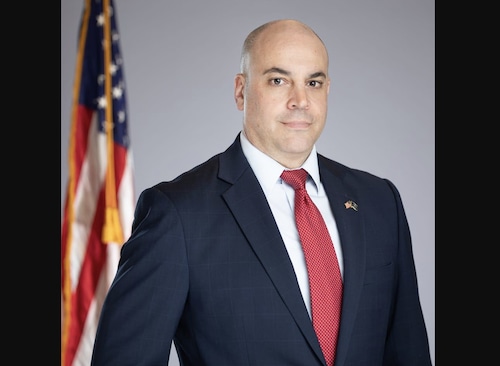Written by James H. Cawley
New Attorney General Dave Sunday issued a no-win ultimatum to incumbent Consumer Advocate Patrick Cicero before he was sworn in, stating unequivocally that he would be dismissed if he did not reapply for his job or resign.
With effect from January 31, Cicero resigned in protest, citing the office’s longstanding independence. Following lengthy public hearings in 1976, the legislature came to the conclusion that, in Public Utility Commission rate issues and other matters, public utility customers were vastly outnumbered by the utilities’ elite attorneys.
The establishment of an independent Office of Consumer Advocate (OCA) under the Department of Justice (now the Office of Attorney General) for solely administrative functions was supported by both parties. Customers of public utilities who lacked the time, knowledge, and resources to fight the utility lawyers—whose fees are recouped by the companies as a wise economic investment in customer rates—were to be forcefully represented by the Consumer Advocate.
By granting the Advocate sole authority to represent consumers before the PUC on behalf of the Commonwealth, the Consumer Advocate’s independence was established. Additionally, rather than acting on behalf of the Attorney General, the office is fully free to choose how and when to get involved in PUC and court proceedings.
The advocate receives funding from public utility assessments through a budget request that is distinct from the attorney general’s. The statute forbade the Consumer Advocate from working for any public utility or seeking public office for two years following their departure from office in order to keep politics out of their work. The advocate needs to be confirmed by a majority of the Pennsylvania Senate.
In OCA’s 49-year history, there have only been seven consumer activists. Six have worked under a law that maintained the Consumer Advocate’s independence, responsibilities, and powers while giving the attorney general the authority to name and dismiss the Consumer Advocate.
All five of his Republican successors (Attorneys General Preate, Corbett (twice), Fisher, Pappert, and Kelly) and two of his Democratic successors (Attorneys General Kane and Beemer) adhered to the Consumer Advocate’s independent status by keeping the incumbent when they took office, as did the first elected attorney general, LeRoy Zimmerman.
After Consumer Advocate Tanya McCloskey voluntarily retired, Attorney General Josh Shapiro proposed Patrick Cicero, who was then hired by Acting Attorney General Michelle Henry. These attorneys general were undoubtedly aware of their authority and discretion to dismiss a Consumer Advocate who was currently in office. However, they purposefully chose not to since the incumbent, like Cicero, was successfully representing consumers.
Because they understood that people who devote their careers to helping consumers, not corporate interests, are a unique breed, the various attorneys general also recognized the Consumer Advocate’s independence. By requiring the Advocate and his or her staff to be individuals who, due to their education, experience, and accomplishments, [are] qualified to represent the interests of consumers, the statute that created the OCA had such individuals in mind.
The efficacy of OCA can only be seriously harmed to the prejudice of utility customers if any competent and successful Consumer Advocate is arbitrarily removed, particularly Patrick Cicero, who has served with great distinction. Sunday released a statement acknowledging Cicero’s office’s independence, but he did not provide an explanation for his decision to remove Cicero.
In order to safeguard the interests of consumers, he falsely promised the public that having a competent, impartial, and apolitical Consumer Advocate is a top priority for my administration.
Why would you choose a different painter to replace a Rembrandt when he is already on the job?
Why would you take away the one person who has most successfully fought higher utility rates after being elected by consumers who are angry about growing family expenses?
Why wouldn’t you acknowledge or deny that one or both of the biggest water companies in the state have pushed for Cicero’s termination? They drafted a law in 2016 that increased customers’ bills by $85 million a year despite Cicero and his predecessor, Tanya McCloskey, protesting vehemently.
Sunday should uphold the Consumer Advocate’s independence by rejecting Cicero’s resignation and returning him to his apolitical position, if only to maintain his integrity. If not, public utilities with limitless resources will once more outperform utility customers.
Former Public Utility Commission Chairman James H. Cawley was named as a commissioner by Governors Ed Rendell and Dick Thornburgh.

